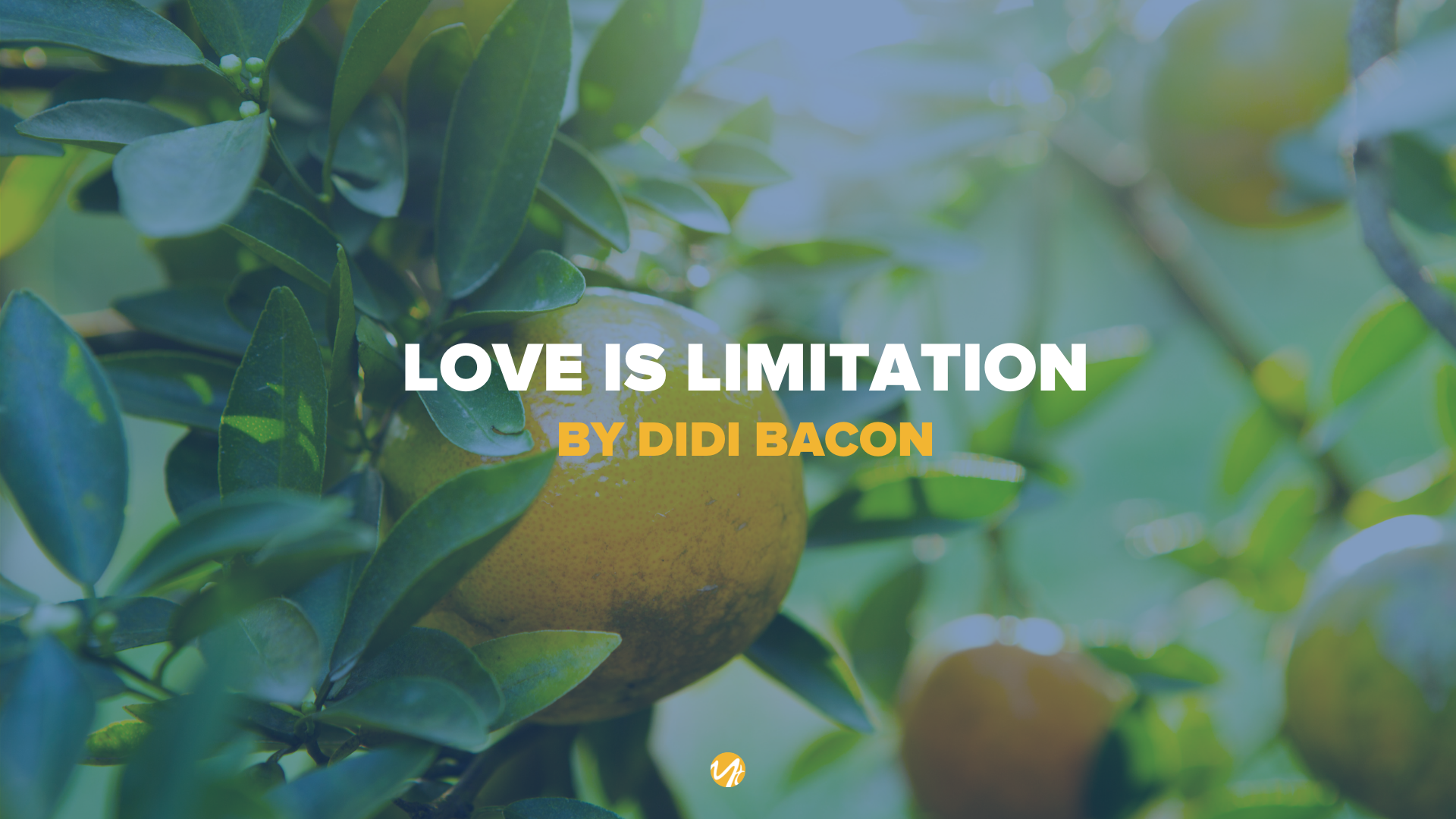In the Genesis story, we are told that God made Adam and Eve and placed them in a beautiful garden called Eden. Their God-given calling was to manage that garden for God to learn how to manage the whole of creation. God gave them access to various fruits and plants to eat, except one. They were not to eat the fruit of the tree of knowledge of good and evil.
Ever wondered why God had this setup?
Why set up a situation that would create the possibility for temptation?
What was the point of having that one fruit forbidden to be eaten?
The point was love. Love only works when it is an exercise of choice. Love is also expressed by limitation. Adam and Eve were going to have to learn to accept this limit to demonstrate their love for God.
Of course, we know what happened.
They could not accept their limitation. Adam and Eve believed the lie of the serpent, that limitation is actually “unloving.” They believed the lie that God would not deny them this opportunity for “happiness” by asking them to limit themselves if he really loved them!
I see this lie being repeated today in so many places. Even in the church, those who claim to love God cannot take the limits that a loving God requires. This ranges from the roles of men and women in the family, sexual choices, money spending, eating habits, and political support. We have forgotten the lesson from the garden: loving God means accepting limits on those “forbidden fruits” to honor Him. But that is what is required to fulfill the greatest of all God’s commandments.
That was a question Jesus was asked by one of the Pharisees, who was an expert in the law of God, one day. The conversation is mentioned in a few places in the Gospels. For example, here is what Matthew says in chapter 22:
“Teacher, which is the greatest commandment in the Law?”
Jesus replied: “ ‘Love the Lord your God with all your heart and with all your soul and with all your mind.’ This is the first and greatest commandment. And the second is like it: ‘Love your neighbor as yourself.’ All the Law and the Prophets hang on these two commandments.” Matthew 22:36-40 NIV
Jesus said if you want to know the summary of all the communications (law) that God has made regarding what it means to be right with Him, it comes down to two: Love God with all that you are, and from that place, love people. It all starts with loving God. Valuing your relationship with God is your first priority. That means choosing to limit yourself when it comes to doing things that you know He has said He does not want you to do. Love is limitation.
I think of it this way. There are things that I do to please my wife. For example, Shannon hates it when the kitchen cabinet doors are left open or not closed all the way. I am bad at opening a door and not closing it, not intentionally, but brainlessly because I am moving on to the next thing. It has been a point of “conversation.” But because I love my wife, I have really tried to make sure I close the cabinet doors. I would like to move at the pace I want to move and not have to slow myself down to remember to close the cabinet doors, but love is limitation. I choose to limit myself to demonstrate love for my wife.
Love is limitation.
Loving God is the highest of all human callings.
Loving God means limitations.
This works for loving people too. Loving God defines what it means to love people.
God is love. That is what the scriptures teach.
But love is not God.
By that, I mean love cannot be something I define; it must be determined by God. Therefore, I am to love people in the way that God defines love.
Hence we have Paul’s description of this kind of love in 1 Corinthians 13:
Love is patient, love is kind and is not jealous; love does not brag and is not arrogant, does not act unbecomingly; it does not seek its own, is not provoked, does not take into account a wrong suffered, does not rejoice in unrighteousness, but rejoices with the truth; bears all things, believes all things, hopes all things, endures all things. Love never fails; but if there are gifts of prophecy, they will be done away; if there are tongues, they will cease; if there is knowledge, it will be done away. 1 Corinthians 13:4–8 NIV
Look at all the descriptors of love, and you will see limitations.
Love is patient. That means I deal with another person by limiting my desire to give up on them when they annoy me or struggle.
Love is kind. That means I limit my tendency to be hurtful, mean, or grumpy, even if I am tired, cranky, or “hangry.”
Just read every description of love, and you will see a commitment to limit what would be easier, or less troublesome, or personally gratifying, or just, or vindicating, or satisfying.
Love is limitation.





Leave A Comment